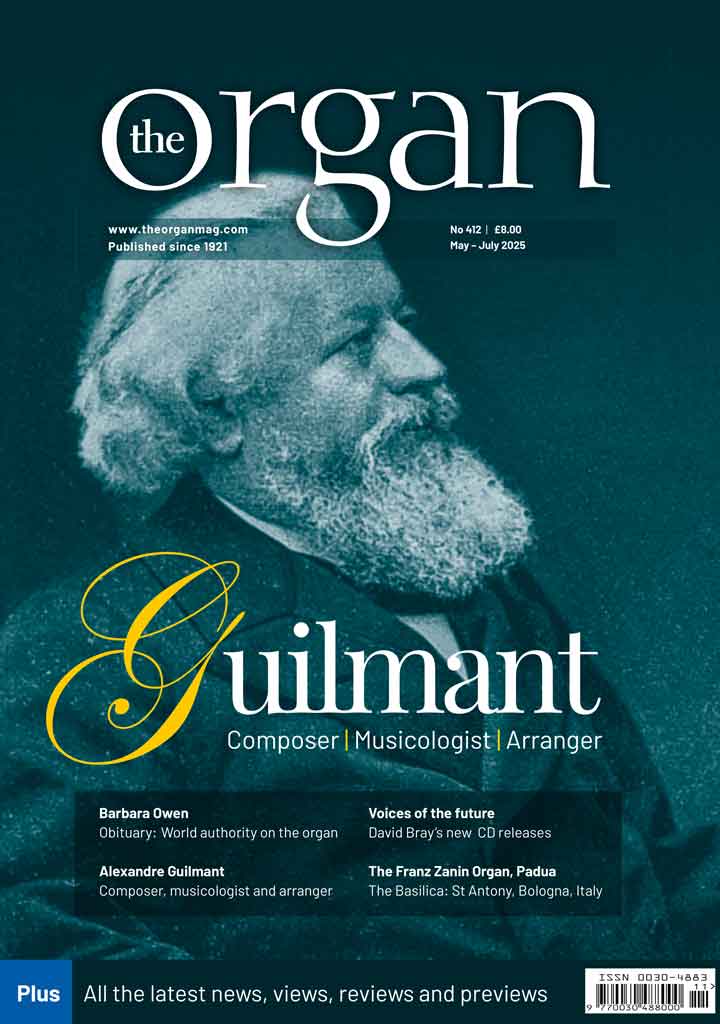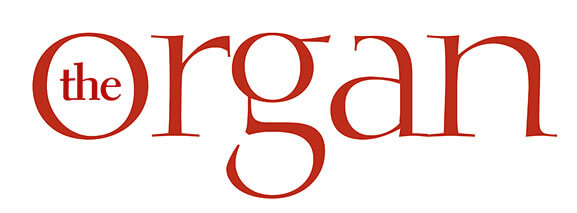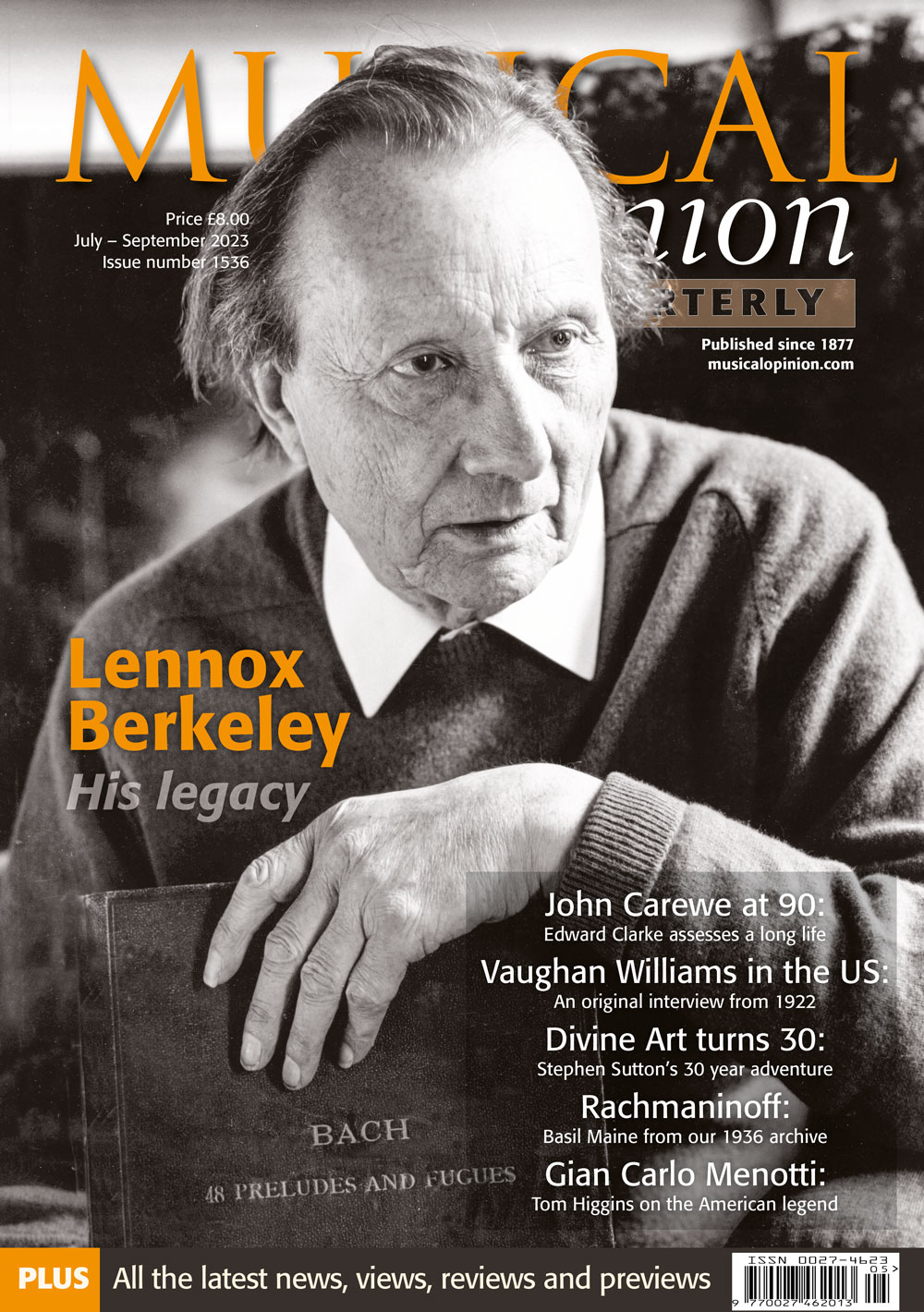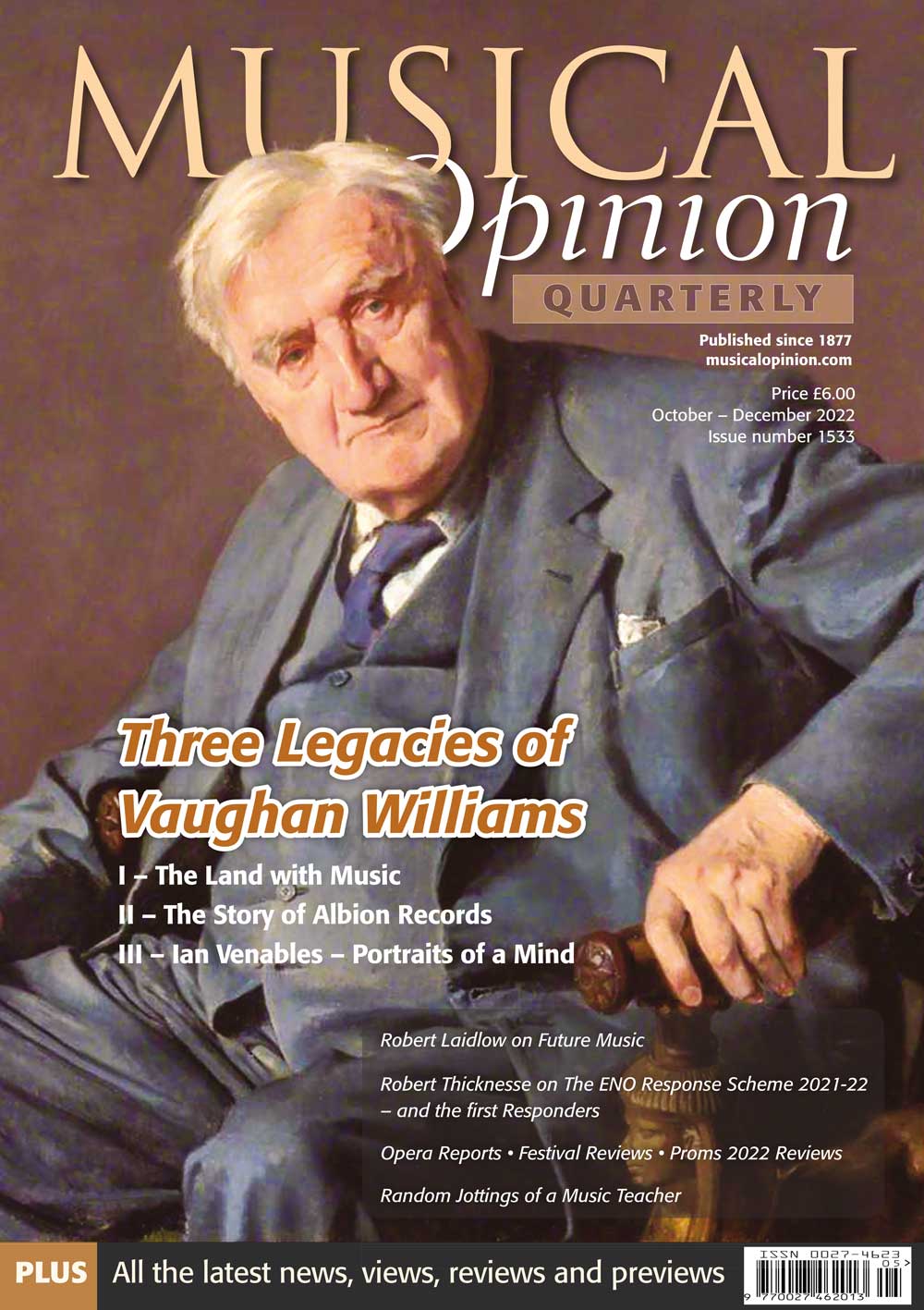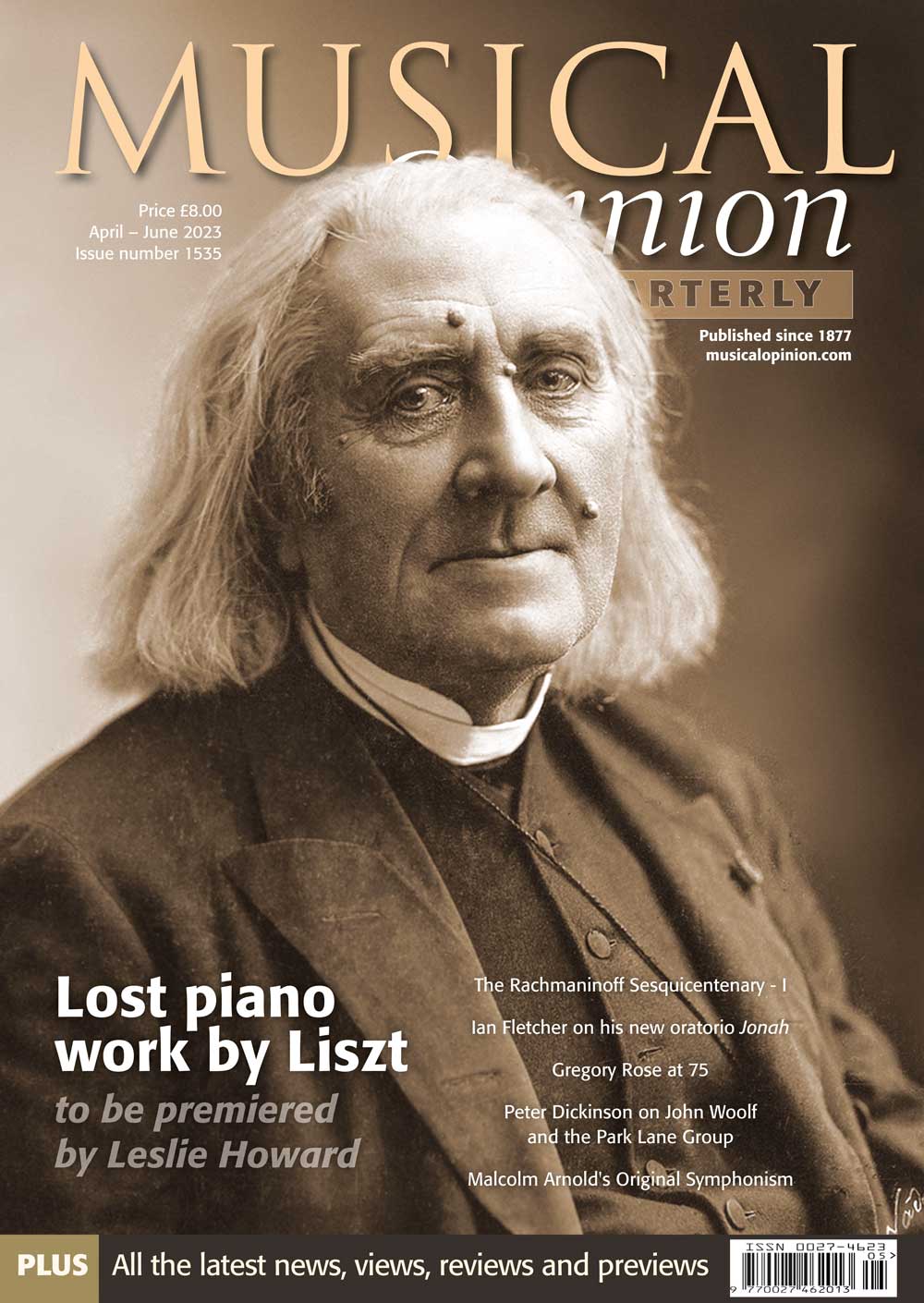Writing in our sister publication Musical Opinion a few months ago, Edward Clark revealed he had been told that the annual BBC Proms Season is now compiled from suggestions by no fewer than five committees, an arrangement that explains a very great deal. His claim has not been challenged or corrected by the BBC, so we must assume he was telling the truth.
As editor of The Organ magazine, in continuous publication for over a century, I find it both astonishing and not a little insulting that not one person on these five committees appears to know very much about organ music – for, in consulting the programmes of the single annual Proms organ recitals of the last few years, it quite clear that the person ultimately responsible for the programming of the entire season is himself deficient in knowledge of even the standard repertoire of the instrument.
The American organist Nathan Laube is this year visiting Organ Professor of the Royal Birmingham Conservatoire, but I trust his students have not been seduced by his penchant for transcribing solo piano music for the organ by composers who also contributed great original works for the organ. To play Liszt’s Piano Sonata on the organ, ignoring the composer’s original masterpieces for the instrument, is the equivalent of musical vandalism. Put simply: it doesn’t work, as his performance amply demonstrated.
Preceding this recital, the customary Radio 3 Sunday morning mish-mash for those incapable of listening to music properly included the Moonlight Serenade – sung (not very well), not in the legendary Glenn Miller band arrangement, and poorly balanced – followed by Sarah Walker introducing the slow movement from Wagner’s E-major Symphony (I’m not kidding), so we were well prepared for another extraordinarily inept BBC comment that “a Scherzo by Schubert is the perfect accompaniment to a cup of tea.” This, dear reader (in case you didn’t know), is the level to which Radio 3 has now sunk, raised a little higher by the (now ‘traditional’) Organ Prom.
One says ‘traditional’, for organ recitals have become a part of the annual Proms season only for several years now – they should have been for decades but weren’t. Their attraction is founded upon a vast repertoire, a greatly distinguished and globally-admired instrument, and – for the BBC – the least financially-risky Prom to mount: just one musician, who brings their own music, and who (here we encounter a problem) chooses the programme they are to play.
For unexplained and frankly inexplicable reasons, in the past few years British organists and organ music – let alone new works – for this annual Prom have been virtually ignored, the chosen music often being of the ‘Gee-whiz! What a big organ!’ variety. One can but assume that the person or (thanks to my colleague Edward Clark helping the cat escape from the bag) one of the five committees now responsible for the Proms seasons has little – if any – knowledge of the organ repertoire or what British organists are up to on Sunday mornings.
It may come as a surprise to the BBC, but it is a safe bet that most organists in this country are not listening to the radio at 11.30 on a Sunday morning, but are in church, playing for Morning Service. The placing of the Proms organ recital on a Sunday morning means that – apart from resorting to the iPlayer – the most knowledgeable listeners are away from their radios or computers – the audience hardly reflecting what could well be a sizeable listenership.
However, at least we have the vast range of original great organ repertoire from which to choose – from Buxtehude to Francis Pott – or from which Proms organ recital programmes ought to be chosen, but as with so much music that Radio 3 programmes and broadcasts these days, intellectual and aesthetic ghosts appear to have been given up.
An organ recital by a distinguished American organist (described as a “superb” artist by the BBC) would appear to offer a golden opportunity to widen the customarily encountered repertoire and offer insights into one or other great repertoire masterpieces – especially in 2022, the bi-centenary of the birth of César Franck. The sight of the great composer’s name in Nathan Laube’s programme heightened our interest, made more intriguing by the nineteenth-century American composer and organist W. J. Westbrook (1831-1894)’s arrangement of the ‘Grand March’ from Wagner’s Tannhäuser. This was published in 1880, when of course Wagner was still alive, and becoming a powerful figure in American concert programmes – clearly, the Albert Hall organ is a perfect instrument on which the perform this transcription, edited further by Laube. The result was an excellent opening to this recital, nicely registered and cleverly adjusted to the somewhat tortuous acoustic of this legendary venue.
This was a clever choice; and as the music grew in volume and stature one could readily appreciate the thrill that must have gone through so many members of the various audiences that came to hear Bruckner play the Royal Albert Hall’s instrument in the first week of the Hall’s opening, 151 years ago, the largest organ in the World, followed by Saint-Saëns and other masters. Today, of course, that original sound is no more, but the appeal of this great instrument since the thorough Mander renovative rebuilding twenty years ago remains as strong as ever.
Laube’s performance of the Tannhäuser ‘Grand March’ was excellent. Wagner himself conducted in this very Hall, causing a dent in the conductor’s rostrum rail when he grabbed it as he fell (a dent thoughtlessly removed about twenty years ago through ‘renovation’ – it should have been left). Laube’s registration and tempos were well-judged, momentarily taking us back to the 1870s, but despite acknowledging the Franck bi-centenary it could hardly be claimed that the Grande pièce symphonique is one of his greatest works – particularly, the occasionally somewhat mundane use to which the not wholly distinguished original material is put. A good deal of this work outstays its welcome, despite a particularly fine structural interpretation which enhanced Laube’s undoubtedly deeply sympathetic performance; for this listener, one of Franck’s late Chorals would have been more fitting acknowledgement of this one-time very popular great composer of organ music.
Although the very end of this performance came over as somewhat bizarre listening for those at home (as I was), tuning and registration appearing less than perfect, whatever one may think of the Franck as a wholly convincing work of art, it was highly intelligent programming and a genuine pleasure to follow it with one of the brilliant keyboard pieces by the French master Charles-Valentin Alkan’s Opus 66 (1865 – for organ, harmonium or pedal piano). Alkan was the dedicatee of the Franck. Alkan’s own dazzling composition, a truly quicksilver toccata, was quite superbly played and would have been a genuine revelation for many listeners.
But, for Heaven’s sake – Liszt’s B-minor Piano Sonata transcribed for organ? I regard Laube’s concept and its manifestation as an insult – as two particulars, the low single notes before the fugue came over as elephant-droppings, and the lack of variety in volume and pacing led to the succeeding fugal working being akin to Honegger’s Pacific 231. This first performance of a quite unnecessary transcription was initially greeted with over sixty seconds of silence. Liszt left several great original works for the instrument. Surely, one of these could have been chosen? Laube’s utterly unnecessary version added nothing to our perception of the composer and his legendary mastery of writing for the piano; it actually detracted from it, alongside various ‘noises-off’. What’s next? – Beethoven’s Hammerklavier? Schubert’s B-flat? Chopin? The Bartók Sonata? Prokofiev Seven? And for the cash-strapped BBC, one of Liszt’s original organ works would have been cheaper to broadcast than a copyrighted unnecessary transcription. No, thank you.
Robert Matthew-Walker
